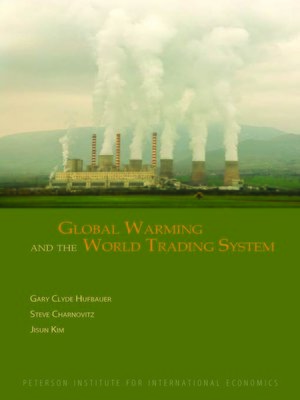
Sign up to save your library
With an OverDrive account, you can save your favorite libraries for at-a-glance information about availability. Find out more about OverDrive accounts.
Find this title in Libby, the library reading app by OverDrive.



Search for a digital library with this title
Title found at these libraries:
| Library Name | Distance |
|---|---|
| Loading... |
In 2006, a team led by the English economist Sir Nicholas Stern issued a striking report that analyzed the economic dimensions of global climate change and called for immediate collective action to reduce greenhouse gas (GHG) emissions. This seminal report poses the critical question of how much emissions should be reduced within specific timeframes. To answer the challenge of finding a best-practices approach, Global Warming and the World Trading System looks at the economic aspects of GHG emissions and seeks a policy method to reduce them without adversely affecting global trade.
The book begins with a survey of relevant data—such as emissions reports per sector—and evaluates current US climate policy options, focusing on the intricacies of specific Congressional bills. In this vein, this study examines whether the competitiveness provisions now under consideration are compatible with the rules of the World Trade Organization (WTO) and explores the pragmatic opportunities the WTO should capitalize on in order to accomplish two goals simultaneously: ensure "policy space" for countries to limit national GHG emissions without sacrificing the competitive position of their own industries and preserve an open trading system relatively free of discrimination and opportunistic protectionist measures. Should governments use trade measures to encourage other countries to cooperate in the adoption of environmental policies? The authors anticipate the potential negative environmental and economic outcomes as well as the disputes over violation of GATT articles. This book addresses how to avoid serious setbacks in an effort to reduce emissions without compromising the status of both domestic and international carbon-intensive industries. Most importantly, the book considers what can be done by environmental organizations to head off conflict with the WTO.







